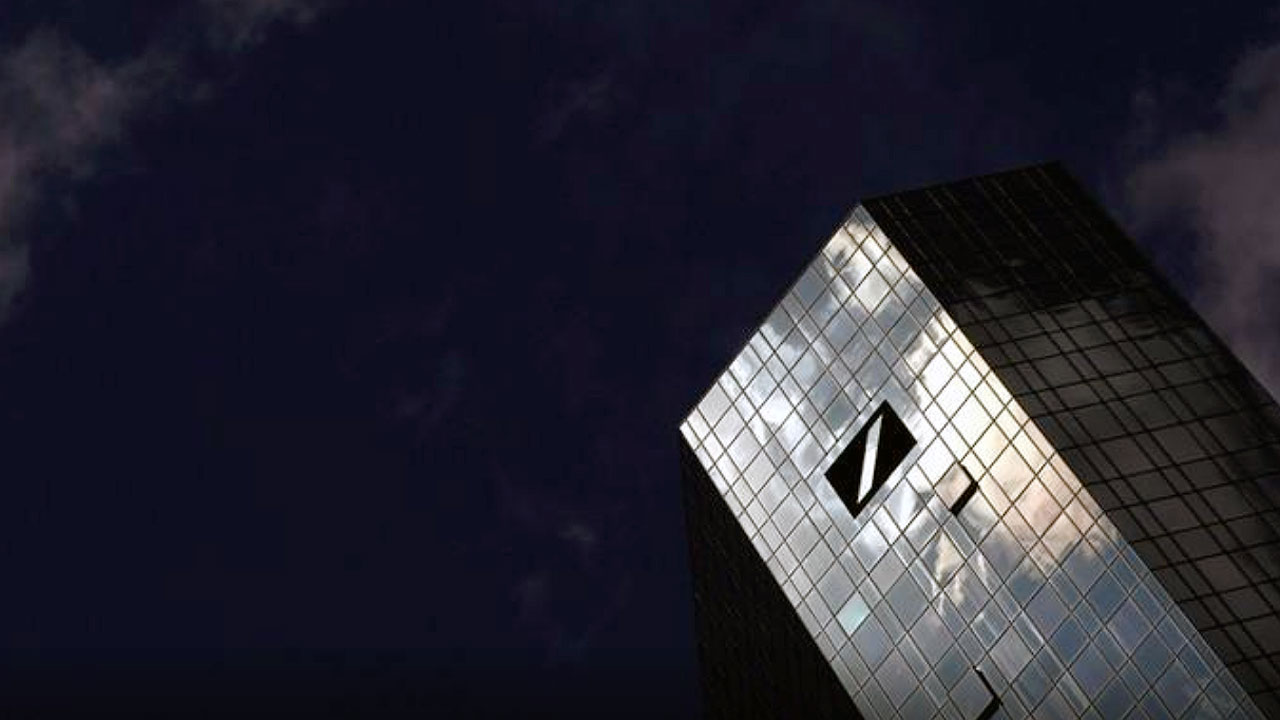
Shares of Germany’s largest bank Deutsche Bank plunged on Friday as investors fretted that regulators and central banks have yet to contain the worst shock to the sector since the 2008 global financial crisis.
Wider indicators of financial market stress were also flashing, with the euro falling against the dollar, euro zone government bond yields sinking and the costs of insuring against bank defaults surging despite assurances from policymakers that the global banking system is safe.
In the latest effort to reassure investors, the US Treasury said the Financial Stability Oversight Council – which comprises the heads of various US regulators – agreed at a Friday meeting that the US banking system is “sound and resilient.”
The meeting was chaired by US Treasury Secretary Janet Yellen, whose comments are being closely watched by markets for an indication of how far authorities are willing to go to shore up the banking sector after the collapse of Silicon Valley Bank and Signature Bank earlier this month.
Earlier in the day, Germany’s Deutsche Bank was thrust into the investor spotlight and slumped 8.5% alongside a sharp jump in the cost of insuring its bonds against the risk of default. The index of top European bank shares ended down 3.8%.
“The market is suspicious, or weary is maybe a better way to put it, that there are more problems out there that have come forth,” said Joseph Trevisani, senior analyst at FXstreet.com.
“It takes time. It’s going to have to be weeks without any problems in the banking system before markets will be convinced that it’s not a systemic problem.”
Banking analysts stressed the difference between Credit Suisse AG CSGN.S – which needed a rescue by bigger Swiss peer UBS AG – and Deutsche Bank, saying the German bank boasted strong fundamentals and profitability.
The research firm Autonomous said it was “crystal clear” Deutsche is “NOT the next Credit Suisse,” while JPMorgan analysts wrote “we are not concerned” and that Deutsche’s fundamentals were “solid”.
Paul van der Westhuizen, senior strategist at Rabobank, cited Deutsche’s profitability as the “fundamental difference” between the two European banks, given Credit Suisse did not have a profitable outlook for 2023.
“It’s a very profitable bank. There’s no reason to worry,” German Chancellor Olaf Scholz also said.
Still, shares in Germany’s largest bank have lost a fifth of their value so far this month and the cost of its five-year credit default swaps (CDS) DB5YEUAM=MG – a form of insurance for bondholders – jumped to a four-year high on Friday, based on data from S&P Market Intelligence.
Short sellers have made a profit of over $100 million on paper betting against Deutsche Bank stock over the last two weeks, financial data company Ortex said on Friday.
Deutsche Bank declined to comment.
Worries in Europe spilled over to the United States before some bank stocks bounced back. JPMorgan Chase & Co. ended down 1.5%, while Bank of America climbed 0.6%.
The S&P 500 regional banks index recovered 1.75%, with PacWest Bancorp rallying more than 3% and First Republic Bank falling 1.4%.
DILUTION CONCERNS
European banks’ Additional Tier 1 (AT1) debt – a $275 billion market of bonds that can be written off during rescues to prevent the costs of bailouts falling onto taxpayers – also came under further selling pressure.
As part of the deal with UBS, the Swiss regulator determined that Credit Suisse’s AT1 bonds with a notional value of $17 billion would be wiped out, stunning global credit markets.
Although authorities in Europe and Asia have said this week they would continue to impose losses on shareholders before bondholders, unease has lingered.
“The developments in the AT1 market mean that most European banks are incentivized at this point to issue common equity, which is diluting for shareholders and also the reason why banking stocks are being reset lower,” said Peter Garnry, head of equity strategy at Saxo Bank.
In a bid to show it has ample capital while keeping funding costs in check, Italy’s UniCredit is leaning towards repaying a perpetual bond at the earliest opportunity in June, a source close to the matter told Reuters. A spokesperson for UniCredit declined to comment.
Amid the market volatility, European policymakers voiced support for their continent’s banks, with Germany’s Scholz, French President Emmanuel Macron and European Central Bank chief Christine Lagarde all saying the system was stable.
UBS CHALLENGES
Policymakers have stressed the turmoil is different from the global financial crisis 15 years ago, saying banks are better capitalized and funds more easily available.
But the worries spread quickly, and on Sunday UBS UBSG.S was rushed into taking over Credit Suisse after its Swiss rival lost the confidence of investors.
Brokerage group Jefferies said the deal would change an equity story for UBS which was based on a lower risk profile, organic growth and high capital returns.
“All these elements, which is what UBS shareholders bought into, are gone, likely for years,” it said. – Reuters
Deutsche Bank tumbles as jittery investors seek safer shores
Source: Bantay Radio
0 Comments